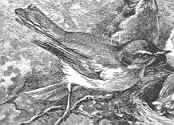This humorous popular song by The Corrigan Brothers discusses President Barack Obama's Irish ancestry. (The genealogical facts are discussed in some detail here.) One important aspect of the song is the melody, which is clearly derived from (though not identical to) a traditional tune, Sweet Betsy from Pike (also known as Villikins and his Dinah). The traditional air can be heard here at the Digital Tradition.
The Corrigan Brothers are not the first to re-use this traditional tune. Many popular songs were sung to it in the 19th century. One such song, found in the 1896 book Lincoln's Campaign was a political song from 1860 about then President-elect Abraham Lincoln:
One Abr'am there was who lived out in the West,
Esteemed by his neighbors the wisest and best;
And you'll see, on a time, if you follow my ditty,
How he took a straight walk up to Washington city.
Others are available on-line at the Library of Congress's American Memory web site. The song titled "A new song for Sherman & Sheriden", begins
To SHERIDAN and SHERMAN, great merit is due,
They routed the Rebels each place they went to.
In the Shenandoah Valley they struck a home blow,
Where SHERIDAN whipped EARLY, who was a great foe.
Writing words "to the tune of" a popular air is always possible, even if the air is under copyright. But performing the air publicly is an exclusive right of the holder of copyright in the air. It is because the air Sweet Betsy from Pike is publici juris that The Corrigan Brothers were able not only to write words for it, but to perform it publicly as well, and post a recording of it to You-tube, all without being impeded by the frictional force of copyright clearance. Had Sweet Betsy from Pike been under copyright, The Corrigan Brothers might have been compelled to use a different tune, possibly with less success, since it is at partly due to its catchy melody that their song has become popular.
So here is another example of what Professor Lessig calls "Remix culture." The creative freedom allowed by the public domain has led to "progress of Science", in this case, the sciences of music and political humor.
Subscribe to:
Post Comments (Atom)



No comments:
Post a Comment